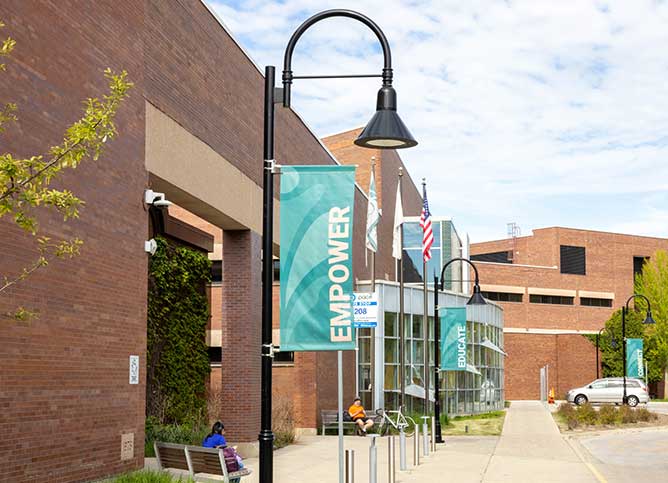If you're interested in studying the interactions between humans and the rest of nature, and are serious about making meaningful contributions to sustainability and conservation, Oakton's Environmental Studies Concentration (ESC) is for you.
This 16-semester-hour concentration brings together concepts and insights from numerous disciplines to promote a thorough understanding of complex environmental issues. As an ESC student at Oakton, you will:
The disciplinary approaches of the natural and social sciences, as well as the humanities, are all essential to a full appreciation of the relationships between humans and ecosystems. Any attempt to think critically and productively about how to best meet current environmental challenges will depend on this multifaceted approach.
The ESC prepares students for transfer into a variety of majors dealing with the environment, such as sustainability; environmental philosophy, law and policy; environmental art and literature; environmental engineering and chemistry; conservation biology and natural resource management; environmental journalism; environmental studies; ecology; environmental restoration; natural areas management; urban agriculture; and urban planning and transportation systems.
Most courses in the concentration meet the general education requirements and have IAI transfer codes. However, students should consult with the environmental studies coordinator(s) to ensure that they are taking the necessary courses in each general education area and are not taking more than one course with the same IAI number.
Students meeting the requirements for the ESC will have a notation added to their transcript indicating successful completion. To receive this designation, students must complete an ESC completion form and meet with the environmental studies coordinator(s).
Pre-majors are recommended for students planning to complete a Bachelor’s degree after transferring to a four-year institution and are designed for students who have not yet decided on a specific four-year college or university. Career options in this field reflect the salaries and opportunities available to students upon completing their Bachelor’s degree.
To see specific Transfer Path agreements that Oakton has made with partner universities, please see the Transfer Partnerships and Guides.
For additional support with transfer planning, including course selection and educational planning, please contact the office of Advising, Transitions, and Student Success. The Career & Transfer Center (CTC) offers additional resources for students preparing to transfer to four-year colleges or universities.
Enrolling at Oakton College can save you thousands of dollars and help you earn more over the course of your career. Our tuition is among the lowest in the region, and we offer many ways to bring your costs down even more.
99 percent of Oakton students graduate without debt.
To help you get there, you can apply for a scholarship, which you don’t have to pay back. We award $12 million in scholarships annually. Financial Aid includes grants, loans, and other forms of financial assistance that can reduce your costs of attending college.
We offer payment options that give you control over how you pay. Pay all at once or spread your payments over the course of the semester.
Learn more about your options for paying for your education


Tess Lesniak
ESC Co-coordinator
847.376.7054
tlesniak@oakton.edu
Marian Staats
ESC Co-coordinator
847.376.7103
mstaats@oakton.edu